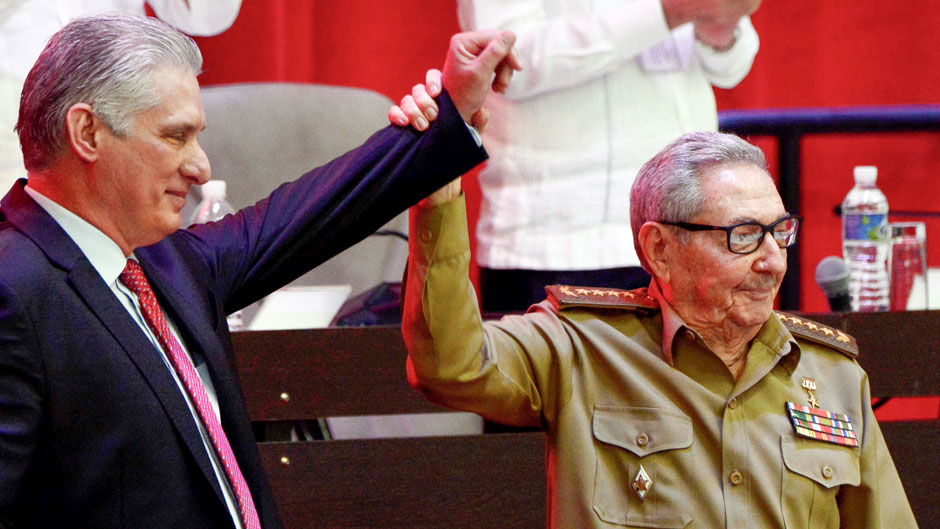When Cuban President Raúl Castro retired last week, he created an historic moment: it was the first time the island had not been ruled by a Castro since the triumph of the 1959 revolution.
The 89-year-old announced that he was stepping down as head of the Communist Party, handing the leadership position to his protégée, 61-year-old Miguel Díaz-Canel.
“Nothing, nothing, nothing is forcing me to make this decision,” Castro said upon retiring. “As long as I live, I will be ready with my foot in the stirrup to defend the homeland, the revolution, and socialism with more force than ever.”
Michael Touchton, associate professor of political science in the University of Miami College of Arts and Sciences, said that Castro has relinquished the day-to-day running of the country but could still exert influence in the background, “sending messages and even orders” to Díaz-Canel.
“He is leaving the opportunity for Díaz-Canel or someone else to do something different,” he said. “But while Castro is alive, I would not expect to see any meaningful reforms.”
Those reforms are precisely what many younger Cubans long for, experts said.
The island is undergoing a crisis with a tattered economy that has shrunk 11 percent in 2020 and a loss of tourism revenue estimated at $2.5 billion, according to the Cuban National Office of Statistics. Lines for food are long.
Remittances from abroad have also diminished. The COVID-19 pandemic has also spread widely throughout the island, and the government has promised a vaccine but has not delivered.
Yoani Sánchez, the Cuban independent journalist who was the first Distinguished Presidential Fellow at the University of Miami, wrote in her blog 14ymedio that when the national press covered Castro’s retirement and predicted a new future for the country, they were being shortsighted.
“‘Castrismo’ is more than one man and his cronies,” she wrote. “It is a way to handle the politics, of controlling the press, allowing the military to manage the economy, controlling what one studies, carrying out international relations, and framing ideological propaganda.”
She mused whether Díaz-Canel was up to the task of change.
The Cuban economic crisis and the coronavirus pandemic are huge stumbling blocks for the new party leader.
“These transitions usually take place in times of crisis,” Touchton said. “Díaz-Canel is inheriting a very bad situation.”
He is also inheriting a growing discontent by young people who are internet savvy and can compare their lives to those of other youths in other countries, experts said. Dozens of protests against the government are posted on social media platforms daily.
As he moves ahead, Díaz-Canel must walk a fine line, said Touchton. He is not part of the original group that toppled dictator Fulgencio Batista in the Cuban revolution.
A lot of older people in Cuba gave the Castros extra leeway because they had a “heroic mythological status,” seeing them as heroes who defeated Batista, faced-off against the United States, and led the country during the entire Cold War period, said Touchton.
“There are people who supported the revolution because a Castro was in charge and they might not support Díaz-Canel,” said Touchton. “He will receive more blame for the current crisis because he was not part of the Cuban revolution.”

